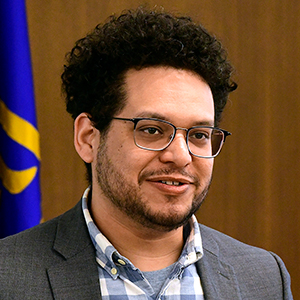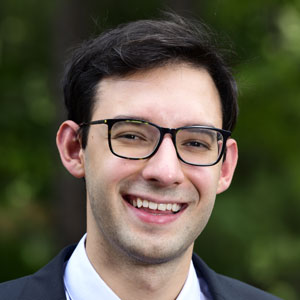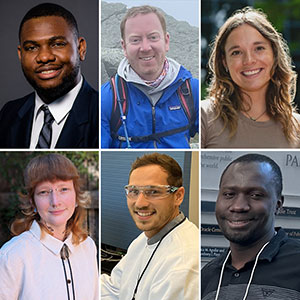After earning a silver medal at the 2018 U.S. Junior Figure Skating Championships and finishing in the top 5 at the 2019 World Junior Championships, Sarah Feng’s athletic future was promising. But the cancellation of competitions in 2020 due to COVID-19 provided Feng new perspective.
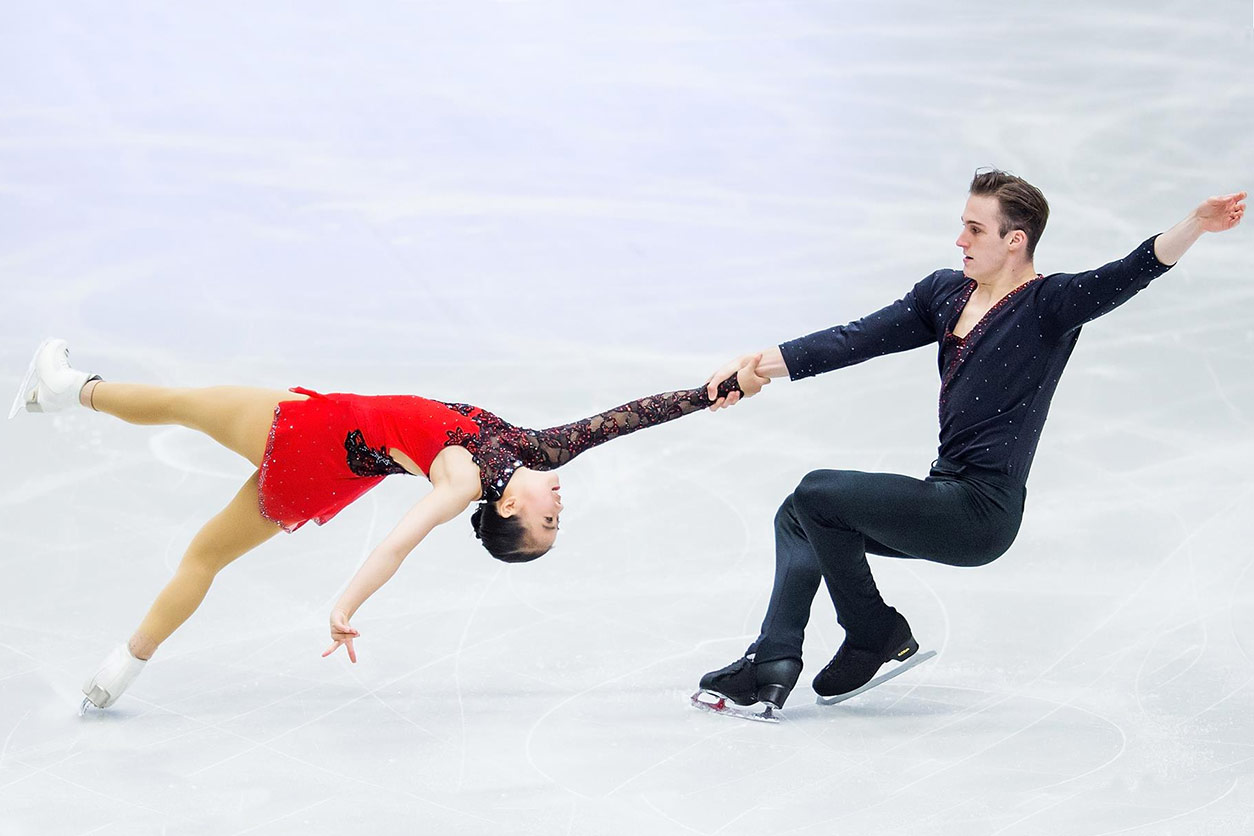
When she took a leap away from competitive ice skating to pursue chemical biology at the University of California, Berkeley, Feng said she feared she was starting off behind her peers. But a summer internship at NIEHS revealed her indirect route may be her greatest asset.
Feng, who interned in the Chronic Disease Epidemiology Group led by Dale Sandler, Ph.D., recently spoke with Environmental Factor about her journey from the ice rink to NIEHS and what she has learned along the way.
Environmental Factor (EF): How has the transition been from skating to academia?
Sarah Feng: It’s been terrifying, but also mysterious and exciting exploring my interests outside of skating. Although I have always loved science, I knew I didn’t have much exposure to the realm of possibilities in academics, so I took a variety of classes, including some in the arts and humanities, at a local community college to broaden my understanding of the world. After 2 ½ years, I felt confident that I wanted to keep going in science, so I transferred to UC Berkeley as a junior chemical biology major. I started out in environmental microbiology research, and although I loved the work, I also learned that I was more interested in the relationship between human health and the environment. I started exploring that interest, reached out to those whose work I found interesting, and continually kept an open mind to new opportunities. That’s what led me to epidemiology research at NIEHS this summer!
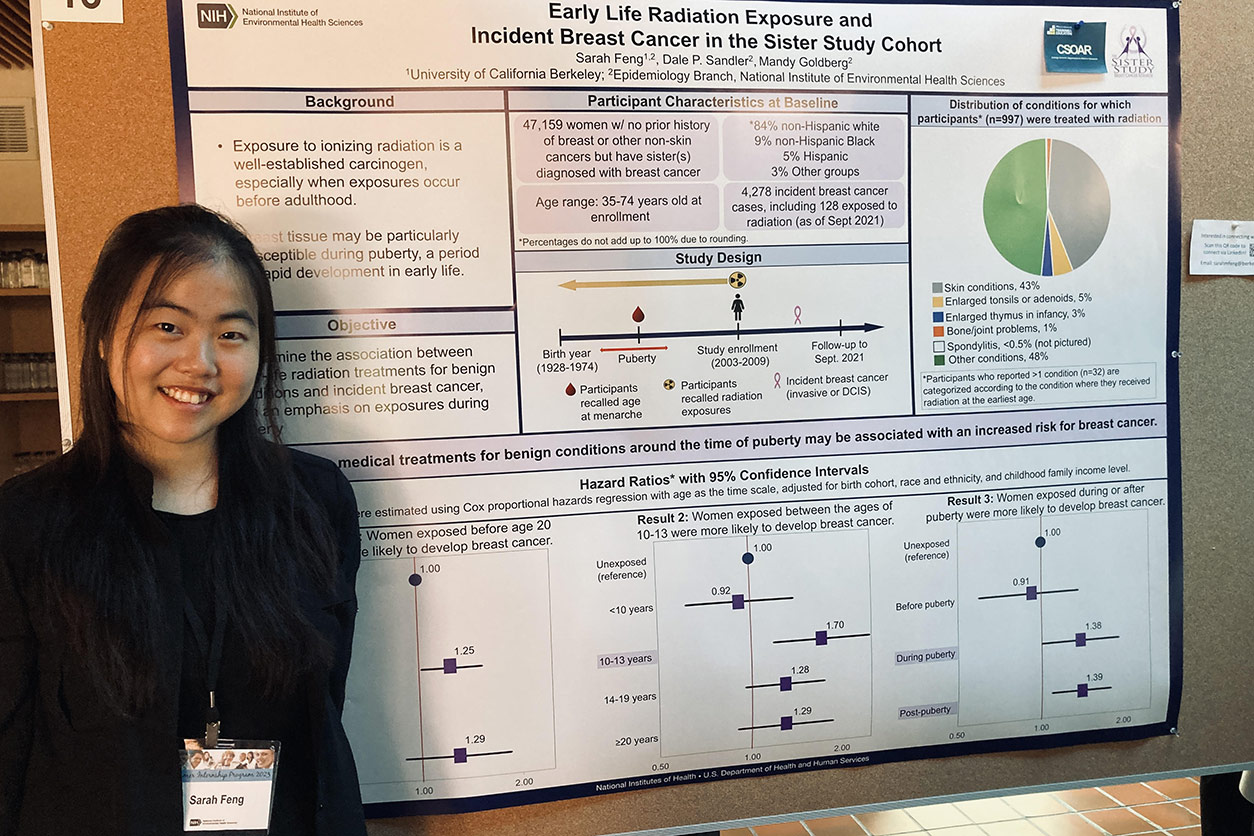
EF: What was your greatest takeaway from the NIEHS Summer Internship Program?
Feng: I learned that life and the path of research is not linear. For example, I met someone at NIEHS who used to be a veterinarian, and now she’s doing epidemiology research. People come from all different backgrounds and their journeys all look different, so that was encouraging. Sometimes I feel that because I’m a former athlete, my path hasn’t been straightforward and I might be behind my peers. But that’s not the case at all. In fact, I learned that my path has given me a unique perspective and approach when I’m solving problems. Now, I’m less stressed about planning every step of my life. I learned that there are so many different types of research under the environmental health umbrella, and that there’s no reason to be afraid of exploring.
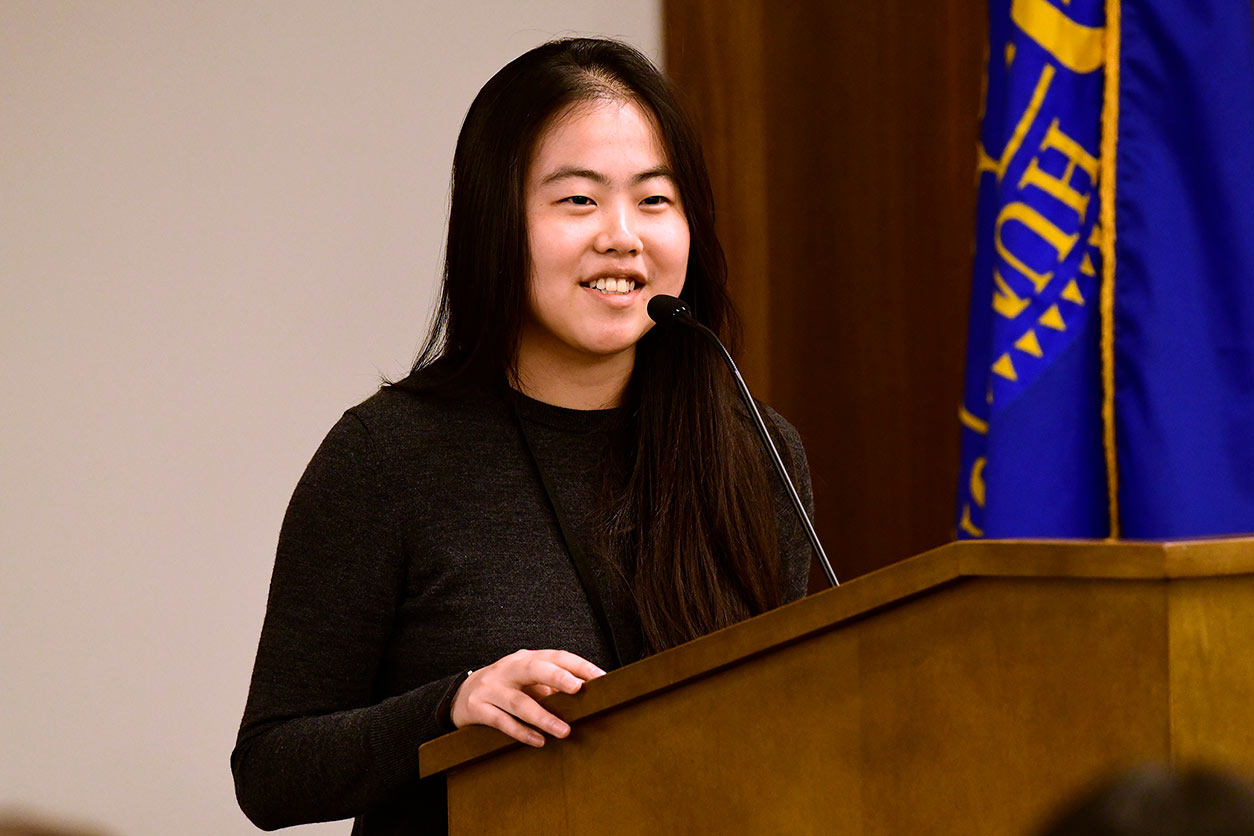
EF: How has ice skating influenced your approach to science?
Feng: I think competitive sports teach a lot of discipline and personal responsibility. Athletics taught me to reflect on what I’ve done, where I want to go, and to make a plan with concrete steps to get there, as well as the discipline to stick to that plan. I think that is a big takeaway from skating that has been very helpful as I pursue research. Also, in sports, nothing works out the first time — ever. When you’re learning a new skill, sometimes it takes a year or two to master it. The same can be said for research. When you’re trying to answer a question, there are a lot of steps and you need to be prepared for setbacks. Discipline and persistence are required to have the patience to stick with it.
(W. Fawn Dorr is a contract writer for the NIEHS Office of Communications and Public Liaison.)







